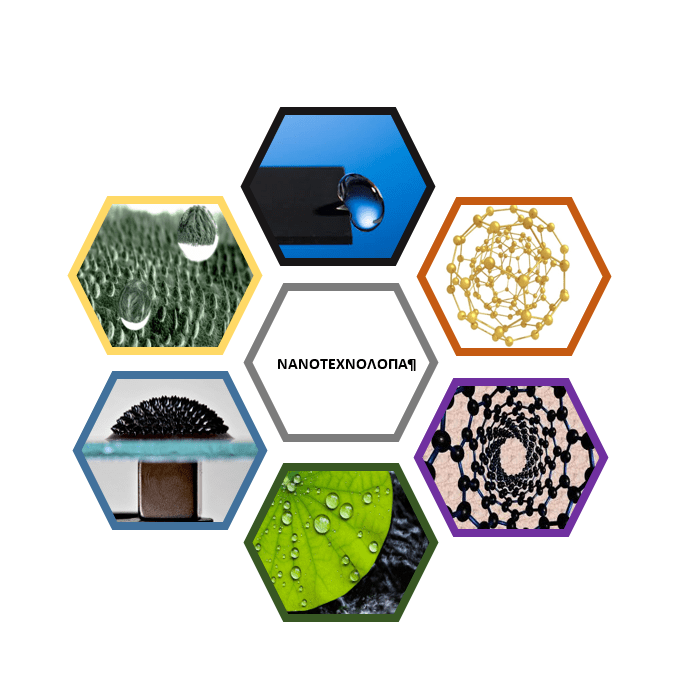Nanotechnology
Science

Nanotechnology program is a short-term laboratory where students will discover a new world, the nano-world. This is a world where our search focuses on atoms, their movements and the interactions between them. This search leads to the understanding of an exceptional new technology, nanotechnology, which aims to create materials with unique and customized properties. Many of these properties are already found in nature and our goal is to adapt them to modern technological needs. And the result is amazing: self-cleaning windows, invisible materials, unbreakable glasses and even self-repairing materials.
Topics:
Topic 1η: What is nanotechnology? Lotus effect and nanolayer applications.
Topic 2η: Hydrophobic surfaces
Topic 3η: Hydrophilic surface – Hydrophilic polymers
Topic 4η: Make your own hydrophilic surface
Topic 5η: Chemical modification – Scratch resistant surfaces
Topic 6η: Chemical Modification –Fireproof surfaces
Topic 7η: Glass conductivity
Topic 8η: Ferromagnetic fluids
Topic 9η: Density separation – Make your own ferromagnetic material
Topic 10η: Gold nanoparticles- Tyndall effect
Topic 11η: Make your own gold nanoparticles. How does a pregnancy test work?
Topic 12η: Memory metal
Topic 13η: From sand to silica waffer
Topic 14η: Fire spitting, Super-hydrophobic materials
Topic 15η: Graphene, what it is and how it is made, Self healing materials
Interdisciplinary Knowledge:
- Physics: electricity, magnetism, conductivity, properties of conductors
- Chemistry: polymers, metal properties, colloidal properties, material properties, carbon chemistry, chemical reactions, chemical modification
- Biology: plants, hydrophilic hydrophobic surfaces, lotus properties, lycopene properties, amino acids, proteins, enzymes
